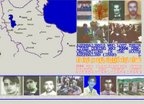About Us

On May 12, 2006, Iran Daily, an official state newspaper, published a cartoon portraying Azerbaijanis as cockroaches. Hundreds of thousands of Azerbaijanis across the country took to the streets to show their protest in peaceful demonstrations. In retaliation, the Iranian Revolutionary Guard’s anti-riot units, Special Forces and Basij militias attacked the protesters. At least 27 were killed, hundreds injured and many blinded by bullet spraying riot guns. Iranian Intelligence Services then launched a massive detention campaign; hundreds, including teenagers, were arrested. The Western media has stayed largely silent on the issue of violations of the rights of Azerbaijanis in Iran. Few outside of the country know about the atrocities committed against Azerbaijanis in Iran. Amnesty International, the Office of High Commissioner for Human Rights (OHCHR), and recently the State Department are among a few who have expressed concern for the safety of detained Azerbaijanis, asking the Iranian government to respect human rights and their international obligations. Azerbaijani activists are in constant struggle for basic rights, such as the right to education in their natural mother tongue. They are not permitted to assemble in public places or in their own houses on dates important for the Azerbaijani nation’s history, such as honoring national heroes like Babak, Sattarhan, Baghirhan, as well as national leaders like Pishevari. Azerbaijani human rights activists are constantly arrested and mistreated in Iranian prisons. Even members of the Azerbaijani clergy, who have been trying to raise awareness about some of the most basic human rights, have been imprisoned. The Azerbaijani Human rights activists lack resources to challenge the oppressive Iranian regime using the very basic means of communication while risking their lives. The movement for national rights in Iran lacks international experience or any support from outside, but still constitutes the strongest challenge to the Iranian regime. The US policy toward Iran is Tehran-centric; while the biggest challenge for the Iranian regime is in the provinces where ethnic minorities are concentrated. We are asking for support to reach Azerbaijanis and other minorities in Iran. They need to know that the world is paying attention to them. They need to know that putting their lives at risk for equal rights is not in vain. They need hope. And they are looking to the international community for it. Knowing they have international support will give them the strength to continue fighting for equal rights. And that means greater stability and democracy for Iran and the wider Middle East. Iranian minorities are agents of change in a country that needs it badly. They are struggling for a positive transformation in Iran; and they need all the help they can get. Contact us: shehidlerimiz@gmail.com







